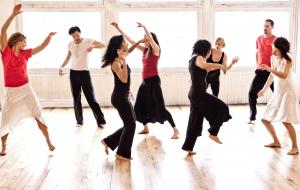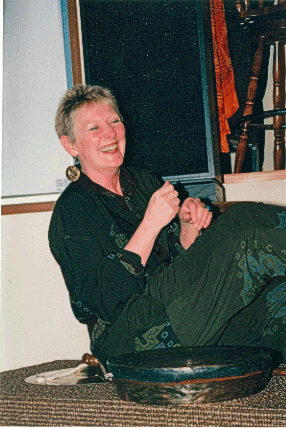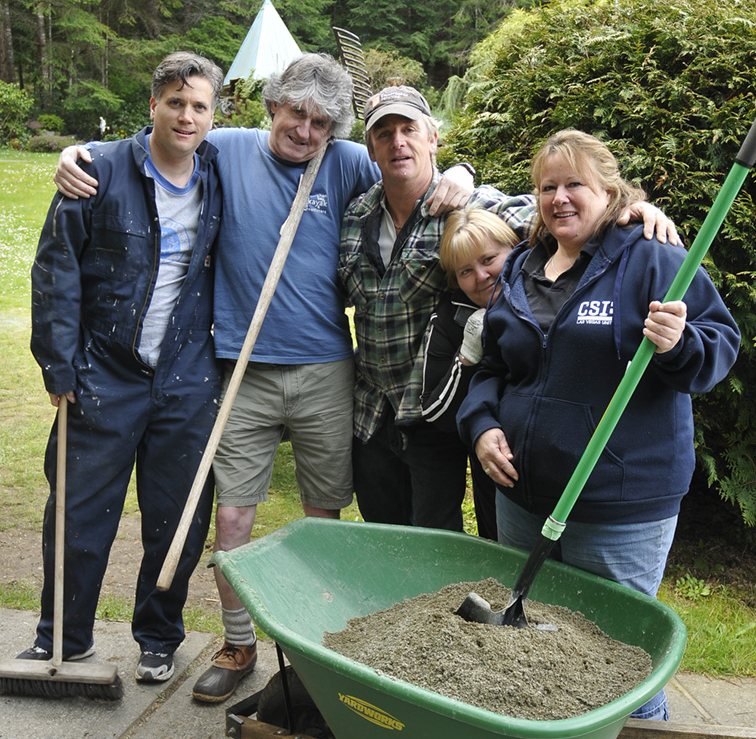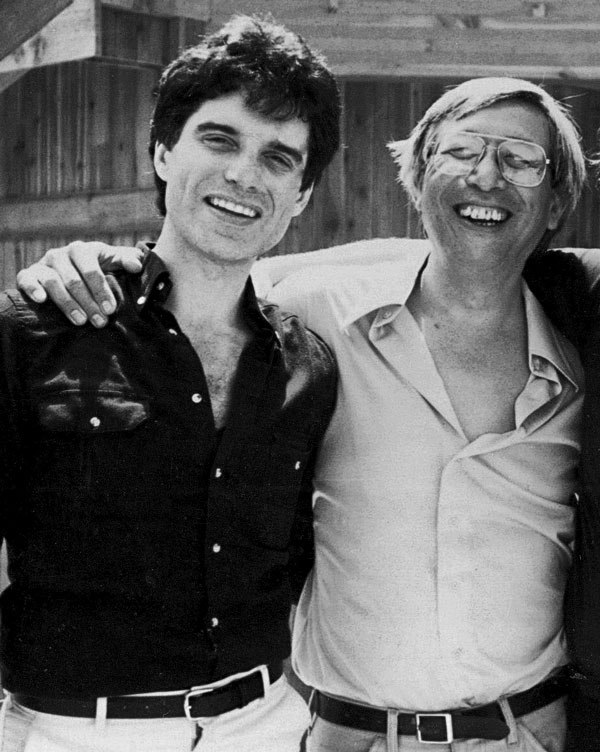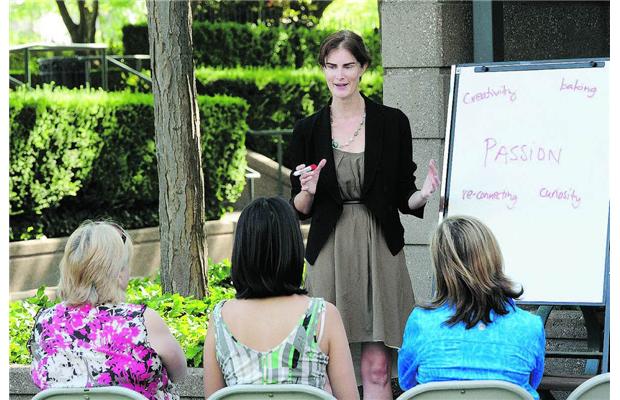Becoming an Elder … Reluctantly
By Ellery Littleton
There … it happened again. Three times in three days. The same card appearing in all three of my tarogram readings. “When the same thing happens three times in close proximity, you need to pay attention,” Richard Weaver – the founder of the Cold Mountain Institute, and a wise elder of the human potential tribe – used to say.
We have come to refer to this card as “The Elder” over the years, a profound spiritual metaphor. In the photo – faded black and white, taken in the 1920s – an older native man in traditional tribal regalia is peering into the distance, hand shading his eyes, in the classic “looking out for something” posture – in this case, guidance or wisdom. Or so I imagine. The image brings to mind an old Navajo spiritual maxim, recounted by William Least Heat Moon in his wonderful book, Blue Highways: “Try to understand things and don’t hurt anybody.”
The native Elder card has a special resonance for me because the word “elder” has somehow come to the fore in my life in the last few years – unbidden, and at first, unwelcome. I have been called a “Haven Elder” several times now. The first time it happened, my knee-jerk reaction was negative; I recoiled; it made me feel … well … old. “Elder” was too close to “elderly” and I wasn’t ready to go there yet. I mean, at 72, I’m old enough to be called an elder, but I wasn’t ready to take it on as a part of my identity; I wanted my bio to have a little more brio, so to speak. It was an image thing, I admit it.
The suit actually fits
The first person to call me an elder was Ernie McNally, much-beloved Haven faculty member, about three years ago, at a faculty meeting. I knew the comment was offered as a compliment, but I struggled a bit to just accept it with a “thank-you.” Secretly, within myself, I had to do the old internal self-deprecating dance. I felt compelled to chew the words over, to try them on, to “understand” them, to see if I could be ok with them. Finally, after a while I decided to cut to the chase and accept being called an elder; take it on, wear it, own it, use it, even.
But it wasn’t easy to take this decisive step toward acknowledging being older, accepting “elderhood.” At first it felt rather like putting on an old grey Harris Tweed suit, which had been hanging in the closet for years, originally worn by my father and grandfather, and other men with big moustaches and cigarette-stained fingers, unstylish and out of date. A psychological suit, of course, a metaphorical suit, but not one that I had ever seriously thought about actually wearing.
But I have tried it on a few times recently, and found that the “suit” actually fits and doesn’t look too bad. It’s a bit itchy, but quite well-cut and the fabric is classic and durable. I am comfortable going out in public in it, even though it sometimes feels a little too … stodgy.
Like the other day, downtown, I briefly observed two beautiful young women sitting in the window of a coffee shop, laughing into their cell phones. I saw them clearly, although I knew they didn’t really see me; I was a kind of generic figure; a greying older man on the sidewalk, a father or grandfather, not of interest. For a moment, I felt a poignant sense of melancholy, a deep missing of an earlier time in my life when the pursuit of love was so dramatic and exciting. An old dream, long gone. Something else I had to let go.
After a moment, I woke up and found myself outside, on the sidewalk, knowing I could indeed be grandfather to both those beautiful young women. And it was ok. I am coming around to seeing that being an elder is a worthy role, as valid and important as any other.
“From Age-ing to Sage-ing”
You don’t have to be old to be able to access “elder wisdom.” It’s important to understand this. We all carry our own wise elder within ourselves, and old age is not required to learn how to access the reservoir of personal wisdom that this archetypal metaphor represents. It is the birthright of us all, evolved over the millennia and passed down to each of us in our very genes. This inheritance from our culture is held deep in the unconscious, but can sometimes be brought fully to consciousness through dedicated self-exploration. By doing several years-worth of intense personal work at The Haven, for instance, or developing an authentic spiritual practice – yoga, meditation, Buddhism, tai chi, journal writing, volunteering, some form of compassionate social action. “Individuation” is what Jung called this lifelong process; becoming who we really are, at the core.
In order to gain access to this inherent wisdom, it is necessary to have reached a certain level of maturity (people in their 30’s perhaps being at the bottom of the age scale). This maturity comes from an honest attempt to live consciously and responsibly, with some genuine interest in the life of the spirit.
The reality is, however, that the most profound benefits of elderhood come to those who seek them, in later life – from the 60s on, generally – when we can truly begin to release the burdens of the past. We can begin to see events and experiences with a new level of compassion and understanding. We can learn to tell the old family stories in a new way, having opened to a fuller awareness of the lives and karma of our parents, grandparents and other key people in our lives.
We can forgive those against whom we have hardened our hearts, allowing them their humanity and fallibility. In the seeing, and in the letting go, comes the healing – both in the present and in the past. Re-telling the old stories – especially the traumatic ones – with a new and more compassionate awareness creates a profound sense of freedom and spiritual light-heartedness.
In his ground-breaking book, From Age-ing to Sage-ing (published in 1995) author Zalman Schachter-Shalomi, says that old age can bring wisdom, serenity, balanced judgment and self-knowledge, the fruit of a long life’s experience. He calls this process “Sage-ing,” which enables older people to become spiritually radiant, socially responsible elders of the tribe.
“The ongoing process of spiritual eldering helps us consciously transform the downward arc of aging into the upward arc of expanded consciousness that crowns an elder’s life with meaning and purpose,” he comments.
“If we compare our lives to dramas with various themes and dramatic plot lines,” ZS-S says, “old age is the time when the meaning of the play becomes clear to us.”
When will you finally start living for yourself?
Elderhood can be a time in which earlier roles and attachments are naturally stripped away, leading to an energized sense of exploration that transcends doing in favour of being. At this point in life, the big question is, “when will you finally start living for yourself?”
ZS-S talks about “becoming the possible sage” who asks key questions such as: What is my next destination as elderhood approaches? Why am I still here? To what purpose? Only by growing beyond the first maturity’s tasks of ego development, relationship, career and parenting, can we adequately answer these questions.
During this process of becoming, we make space in our lives for embracing the spirit. “We need to attend to the fire within,” ZS-S says. “We can discover a degree of consciousness which lies outside activity, and which when young we are too busy to experience.” Elders should expect to live with passion and mystery, with a questing, rather than a resting, spirit.
The years beyond sixty may be evolution’s greatest gift to humanity, writes Jean Houston, author of Life Force. People are finally “uncaged,” free to release energies and capacities the culture restrained in them when they were younger. The real challenge of moving toward elderhood, Houston says, “is to risk all habitual frames of reference and to open the mind to another field of possibility that lies beyond the physical. Having gained a foothold in the inner world, we can then encounter death with calm anticipation rather than overwhelming fear.”
Elders serve as storytellers, Houston writes, “who spin webs of enchanted verbal magic that help people understand their place in the cosmos. When elders tell us stories, we see through our superficial picture of reality into the deeper meaning of life.”
The “E” Word

So anyway … I was talking about my own experience of accepting elderhood. Maybe one of the signs of having actually arrived is a compulsion to ramble on … and on … blithely assuming everyone else is interested. Time to wrap it up.
A few months ago, I wrote to Ernie McNally and asked him if he would be kind enough to provide a few words about my Spirit Journal program, which he had just completed – words I could use in my Haven website workshop description. Again, Ernie brought up the “E” word, calling me a “wise elder” who offered him “a clearer window into my knowing of myself.”
Aw shucks, Ernie. By saying such things you put me immediately in touch with the old family/cultural stricture about not getting a swelled head, or too high on yourself. ” “Who do you think you are?” goes that corrosive old Canadian complaint. “Get over yourself!” That’s the voice of the nagging judgmental inner critic, who is stuffed into all of us at an early age – to some degree – by the culture.
I have found it incredibly difficult sometimes to rise above that stricture, and learn to accept my own strengths and skills and hard-earned wisdom. And to be comfortable with doing so, not having to apologize or be self-deprecating, understanding that what I don’t know is infinitely larger than what I do know. Blessed are those who can gracefully accept the approbation of their peers.
Like I said, I am getting more comfortable with the role, the persona, the tweed suit of “the elder.” In fact, I quite like it. It has a satisfying resonance to it. It offers a satisfying sense of identity, an attractive metaphor. In order to reach this point, I have had to do a lot of letting go of some cherished, deeply-held hopes, expectations and fantasies. Old baggage; I’ve discarded a lot of it. I’ve learned that if I don’t let these things go with some grace, they will be torn away from me anyway – a much more painful process.
Our youth-obsessed culture has long since devalued elderhood. To be an elder in this society is to be ignored and often neglected. There are a few pockets here and there, however, where elderhood appears to be valued – in the Haven family, for instance. Many Haven faculty members have certainly earned their “elderhood,” and generously share their hard-earned wisdom with pilgrims from several corners of the world who come in search of self-knowledge.
Carrying the accrued “best” wisdom of the culture
In many other cultures around the world, elders are held in deep respect as the bearers of tradition, knowledge, spiritual values. Collectively, they carry the accrued best wisdom of the culture on the universal issues facing us all – maturity, responsibility, compassion, healing, the way of the world and of the spirit, and finally, death.
Our First Nations have managed to retain their respect for elders in their communities, despite the ravages inflicted on their traditional culture. Their wisdom is beginning to seep back into the moral fabric of society at large.
Some fundamental aspects of elderhood are eloquently described by George Clutesi (1905–1988) a respected elder of the Tseshaht native people of the west coast of Vancouver Island. A writer, teacher, painter and actor, Clutesi comments on the importance of the elders in his book Stand Tall, My Son, the story of a native youth’s education and coming of age in traditional times.
“The teachings of our ancestors form the principles of our beliefs,” Clutesi wrote. “They are the main guide for you to follow so that you may seek more wisdom as you mature in the continual pursuit of knowledge.
“From your early childhood, make friends with the elders. There lies the wisdom from long years of learning. Be good to them always. They will not divulge their inner teachings until you merit it.”
………………………………
Ellery Littleton will be offering two writing programs at The Haven in 2014, The Spirit Journal (May 2–4) and From Memory to Memoir (Oct. 24–26). In 2015, he will offer a four-day “intensive” Spirit Journal writing program, “with exercises designed to call forth Elder wisdom.”



